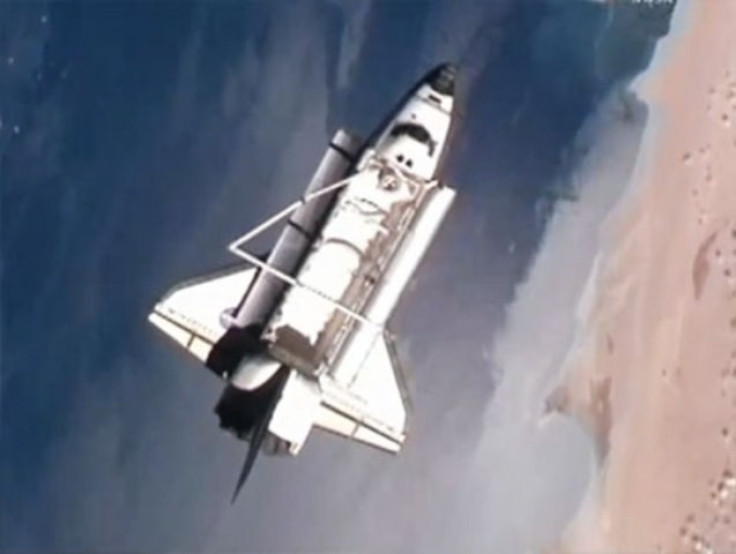Discovery Takes Final Step To Immortality

The theme from Star Trek (the original series) was blaring as the crew from the space shuttle Discovery awoke this morning, getting ready for its last descent from Earth orbit.
Star Trek was all about taking voyages and no space shuttle has done more of that than the Discovery, which will soon retire into a space museum for eternity. The 39th crew of the Discovery undocked her from the International Space Station today.
To celebrate the Discovery's last voyage, actor William Shatner, who played the iconic lead role of Captain James Tiberius Kirk on Star Trek, had a prerecorded message for the crew.
Space: the final frontier. These have been the voyages of the Space Shuttle Discovery. Her 30 year mission: To seek out new science. To build new outposts. To bring nations together on the final frontier. To boldly go, and do, what no spacecraft has done before, he said in the message.
Discovery was the first space shuttle to dock to the International Space Station, when it opened in 1999. Over the course of her 30-year career, it was just one of the many firsts.
Discovery was the spacecraft to feature a female shuttle pilot and female shuttle commander (Eileen Collins), the first African American spacewalker (Bernard Harris) and the first sitting member of congress to fly in space (Jake Garn). On its second mission, it became the first spacecraft to retrieve a satellite and bring it home. In 1985, it became the only shuttle orbiter to fly four times in a single year.
On this mission, Discovery hosted the first humanoid robot to fly in space, Robonaut2. Robotnaut2, created jointly by NASA and GM, assisted the crew on the International Space Station. It will now stay there for other crews.
After undocking, Discovery pilot Eric Boe flew the shuttle around the space station, allowing crew members to take photos of the station with its newest addition, the Leonardo Permanent Multipurpose Module. The crew installed the module, achieving its main goal on the mission.
The Discovery will land on the 9th of March at approximately 11:58 a.m. Eastern Time in Kennedy Space Center, Fla. When it lands and finishes for good, the Discovery will have flown exactly 365 days in space.
To contact the reporter responsible for this story call (646) 461 6920 or email g.perna@ibtimes.com.
© Copyright IBTimes 2024. All rights reserved.











